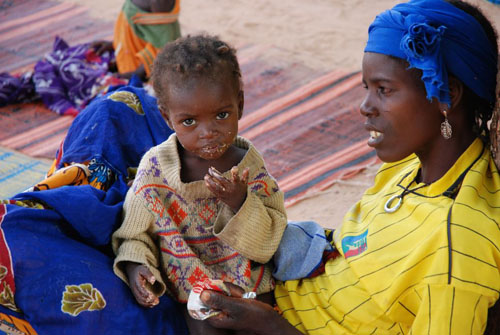 FIAN calls on the European Union to meet its commitments to human rights, and specifically the right to food, by facilitating and strengthening people’s access to productive resources including land, water and seeds.
FIAN calls on the European Union to meet its commitments to human rights, and specifically the right to food, by facilitating and strengthening people’s access to productive resources including land, water and seeds.
La Via Campesina declared in the Bali Declaration on seeds in March 2011: “We cannot conserve biodiversity and feed the world while our rights to save, sow, exchange, sell and protect our seeds are criminalized by laws that legalize the privatization and commodification of seeds.”
Free access to seeds essential
In 2007 the European Commission initiated “Better Regulation”, a program to simplify the process of seed trading. This program does not take into account the diversity of seed trading and could have a catastrophic impact on biodiversity. A major concern regarding the proposed certification is its potential to deprive farmers of access to thousands of traditional seed varieties  developed over millennia.
developed over millennia.
Seeds stand at the beginning of every foodchain. Over thousands of years farmers and indigenous communities have cultivated and developed the varieties of seeds and plants that feed humankind. Until the end of the 20th century more than two thirds of farmers worldwide relied on free access to seeds and plant diversity for their livelihoods.
Trade regimes pose a threat to seed diversity
In poor countries and those with predominately rural economies a person’s daily vitamin- and micronutrient intake is dependent on freely accessible plant diversity. In recent decades the majority of states have implemented restrictive trade regimes that do not respect the right of farmers or indigenous peoples regarding seeds and plant diversity.
These regimes also fail to protect the economic and physical availability of seeds and plant diversity to poor farmers, especially women.
The ‘ownership’ of seeds by multinational seed and agrochemical companies poses a huge threat to ancient species and farmer livelihoods all over the world.
Farmers drawn into a cyclic dependency on industrial seeds
Today only a dozen multinational seed and agrochemical companies own over 60 per cent of the global seed market. The patenting of  living DNA by these companies dramatically affects peasants’ access to productive resources. Farmers are drawn into a cyclic dependency on industrial seeds and are obliged to purchase increasingly expensive inputs, incurring excessive debts.
living DNA by these companies dramatically affects peasants’ access to productive resources. Farmers are drawn into a cyclic dependency on industrial seeds and are obliged to purchase increasingly expensive inputs, incurring excessive debts.
Therefore, FIAN says that feeding the world and conserving biodiversity must not be subordinate to the private interests of the industrial sector.
Related articles:
Farmland grabbing – serious problem in Africa


